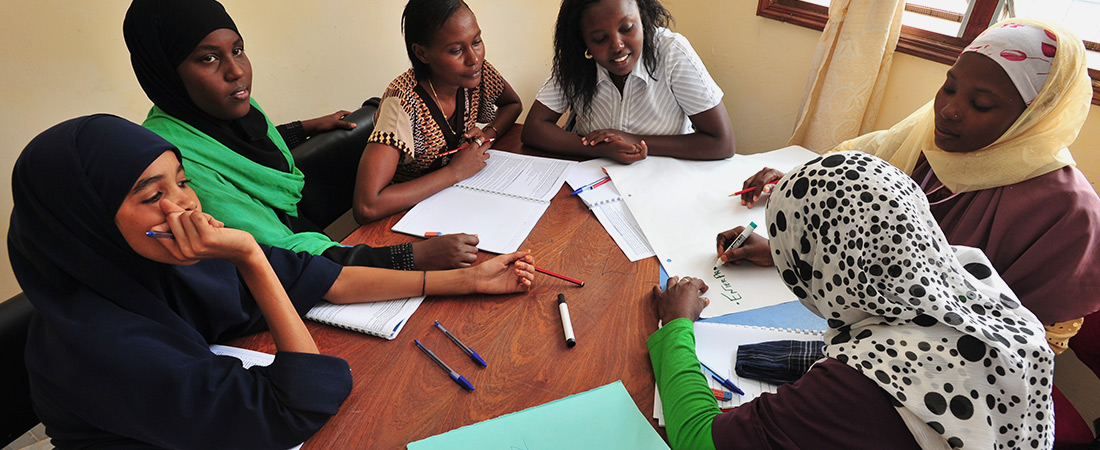Creating New Traditions

Asha Hassan is a woman on the rise.
As secretary for the Garissa County Board Forum (CBF), she helps lead a civic group that coordinates community activities and economic initiatives in her birthplace of Garissa, Kenya. Before that, she led youth empowerment and literacy programs across the county as a CBF vice president.
And in the future? Hassan will soon join peers from across the continent as part of the Young African Leaders Initiative, a leadership development project championed by President Barack Obama. In fact, she is already being honored for her work to support peace and reconciliation in Garissa.
Hassan is just one example of a new generation of female leaders who are emerging in Kenya—and challenging the traditional resistance to women in leadership positions.
“We were initially viewed with skepticism, but the men are now slowly accepting that we can lead our societies to greatness if given the chance,” says Hassan.
Northeast Kenya is home to a large ethnic Somali population, and traditional gender norms have kept many women out of the public sphere. EDC’s Nancy Chervin says that such leadership opportunities were rare a decade ago.
“You didn’t see many women working outside of the home,” says Chervin. “Women who did work were usually pastoralists or were helping to support a family business. And at the community level, all the decisions were made by men.”
Women leading change
All that is changing now. EDC’s USAID-funded Yes Youth Can! North Eastern Region (YYC! NER) project has helped to build youth-led groups that are enabling women to become leaders at the local and county levels. These civic structures—called bunges in Kiswahili—allow young men and women to work side by side as they plan local development projects, discuss issues of concern in their communities, and gain access to modest educational and economic grants.
Bunges are different from traditional community government institutions because they require the participation of women. At the local level, two out of every five members must be women; a woman must also occupy at least one of the bunge’s four leadership positions. Significant representation continues at the county level, where two out of each CBF’s six leadership spots are reserved for women.
By creating so many leadership opportunities, the bunges have transformed the civic opportunities available to women. It’s a change that has been positively received—men in the communities have welcomed the participation of their female peers and value their input and leadership.
Bringing the community together
Seen through the twin lenses of history and tradition, the gains made by Ahmed—and many other young women like her—are remarkable.
“YYC! NER made a deliberate effort to give women an opportunity to participate in the decision-making process and to represent the concerns of women in the community,” says Amina Issa, EDC’s in-country lead for the project. “They are making their voices heard.”
Issa says that involving community and religious leaders in project decisions helped ease resistance to expanding women’s roles and responsibilities. Her own background as a native of Garissa contributed to the success of the project, too.
“It helped that I am from the community and understand the culture, norms, and religion,” she says.
There is evidence that these changes are becoming part of the fabric of the community. A recent evaluation of YYC! NER found that women felt their voices were being heard in bunge discussions and that they had more economic opportunities than before. One female bunge member is planning to start her own poultry business; another earned a scholarship that helped her become a teacher.
These are stories of individual success and prosperity. But taken together, they reveal the progress and potential of young women throughout northeast Kenya, who are increasingly able to pursue professional dreams and contribute to community government.
“We have national and county legislators, ministers, and company executives all coming from this region,” says Hassan. “My generation has a lot of women to look up to.”
